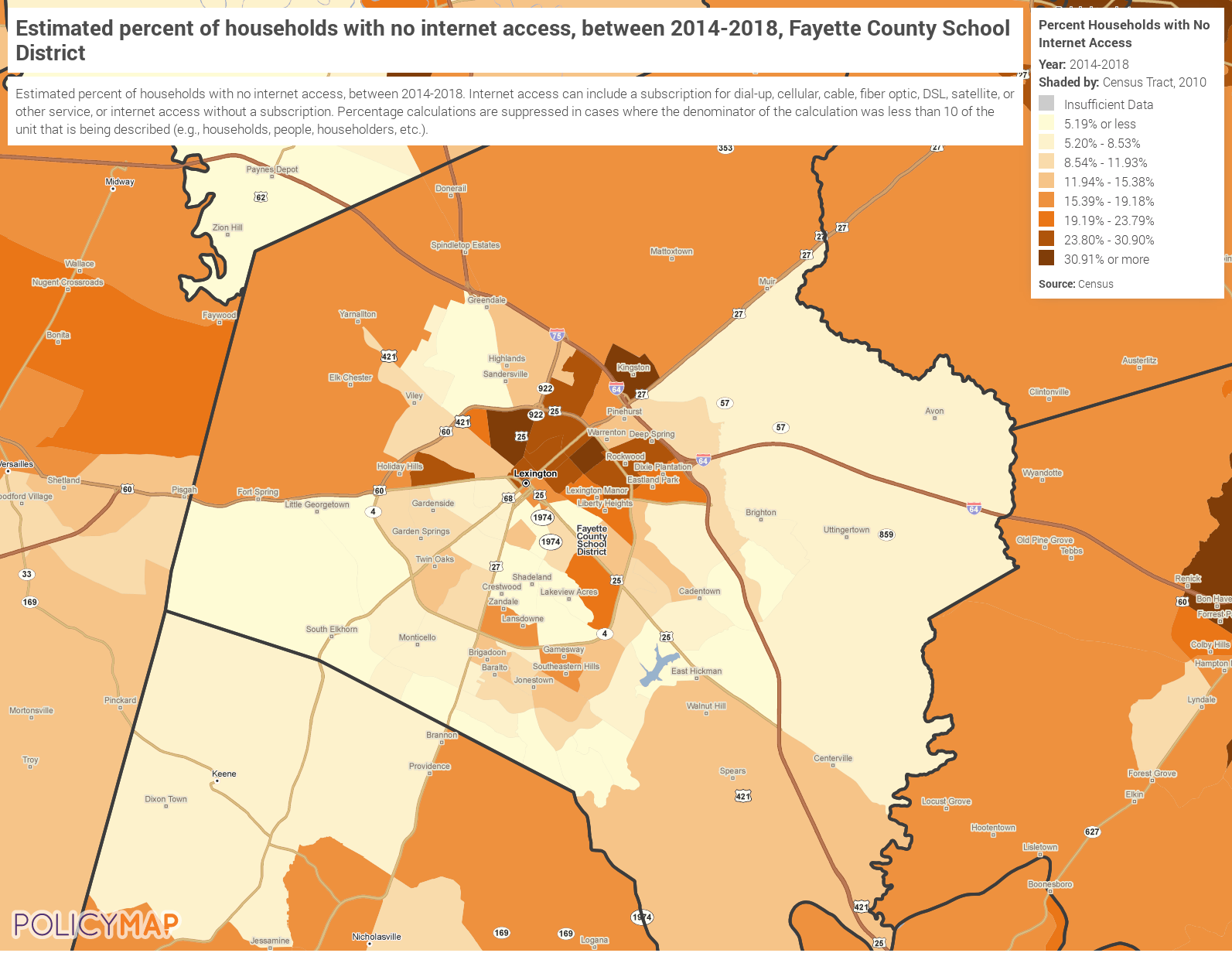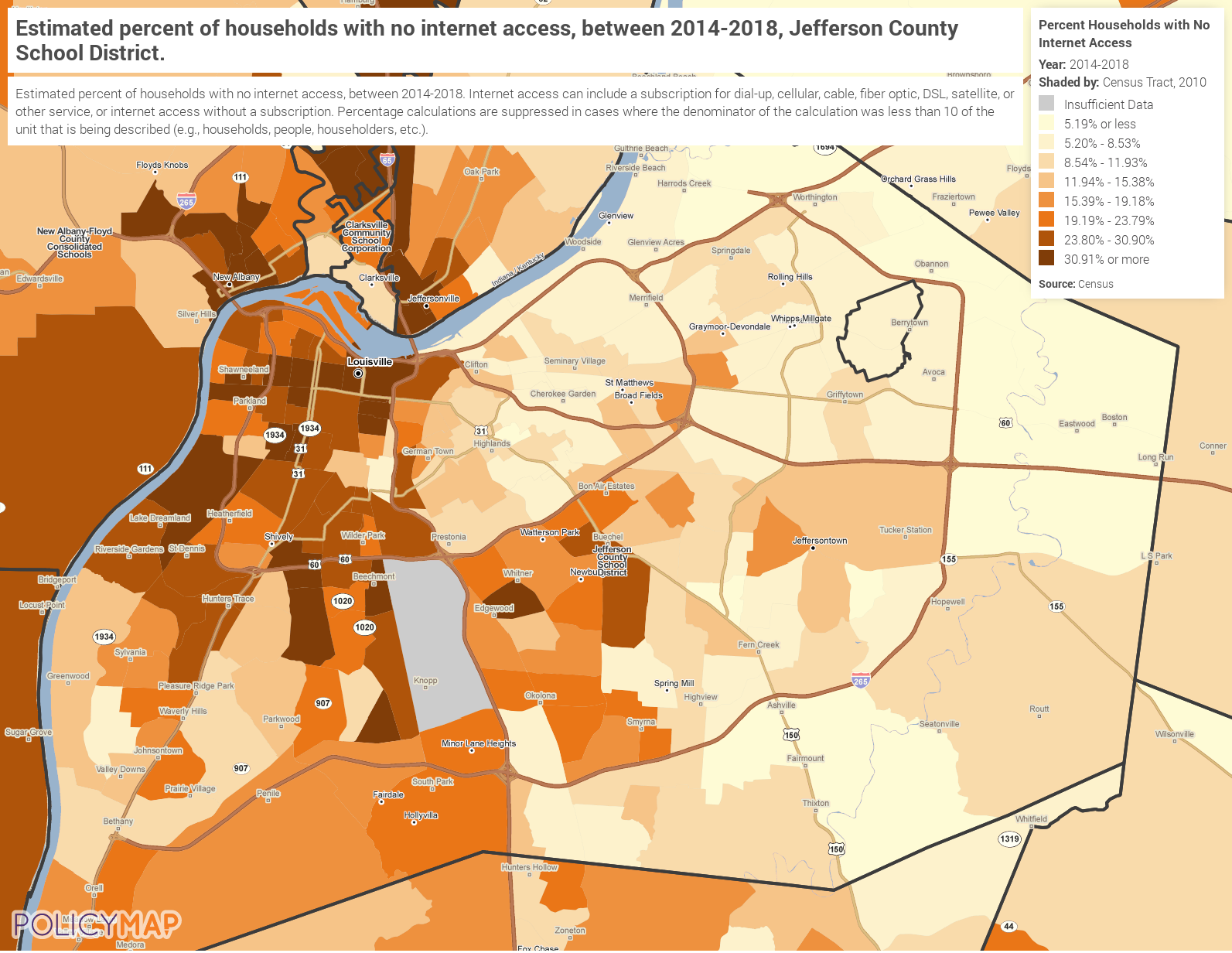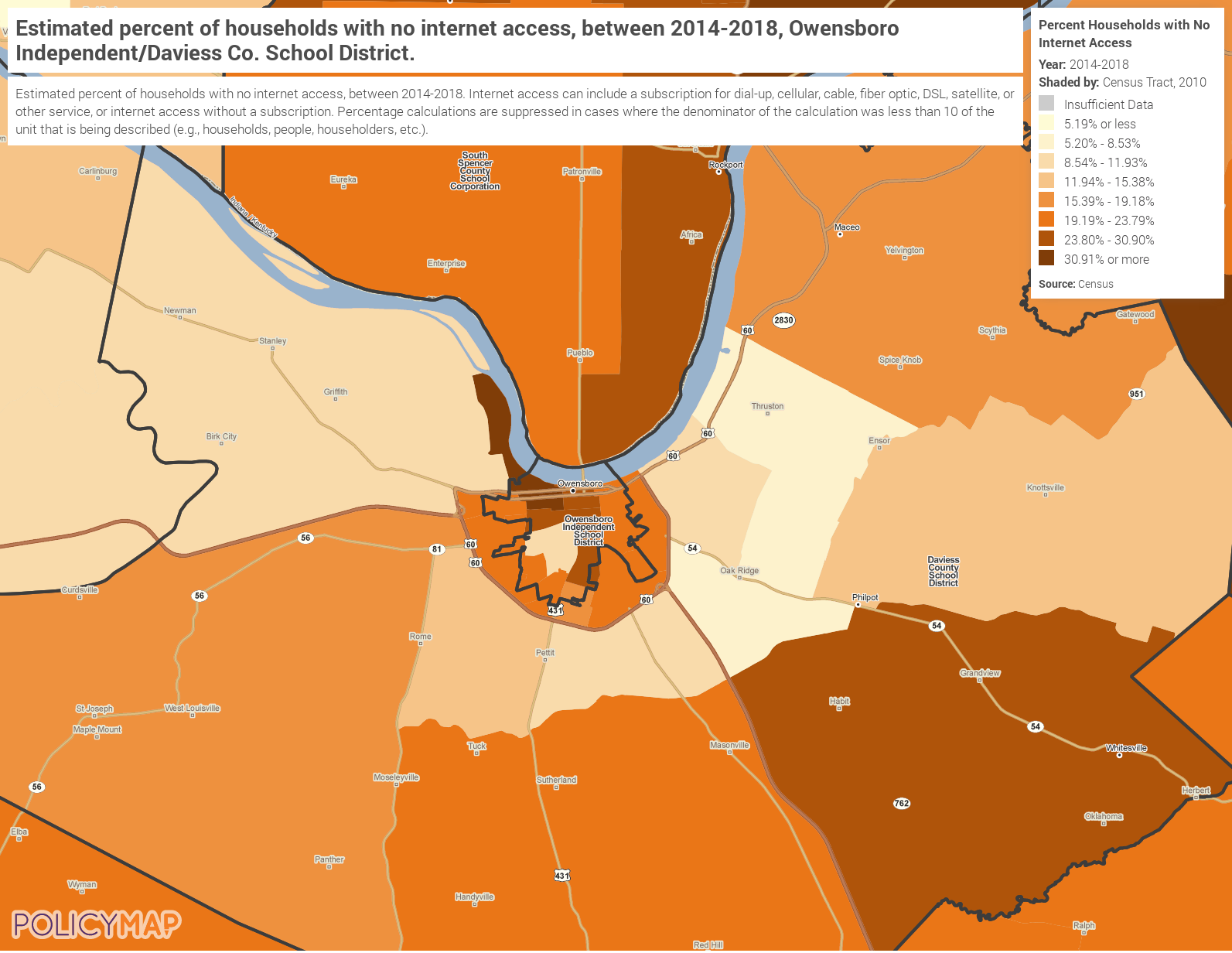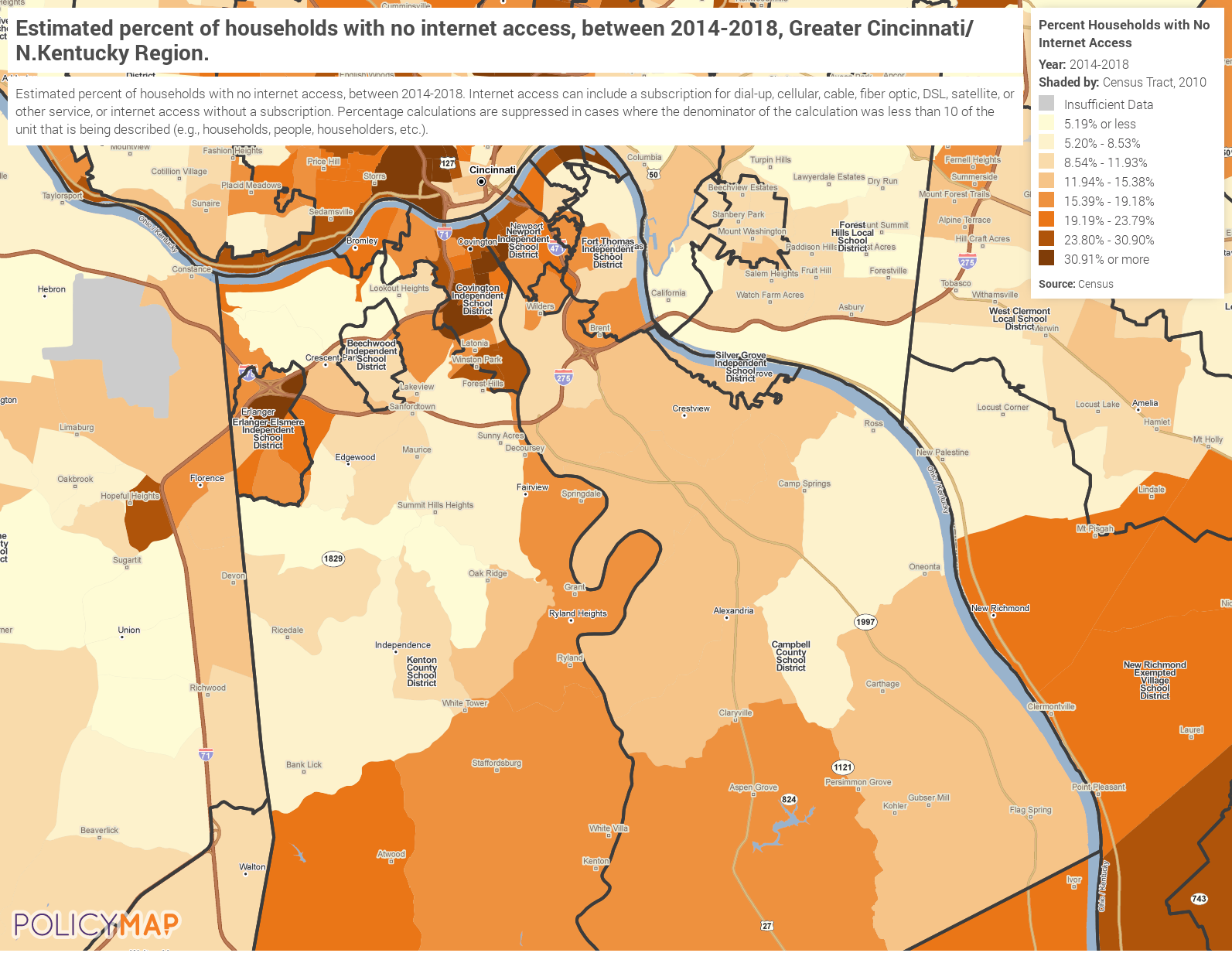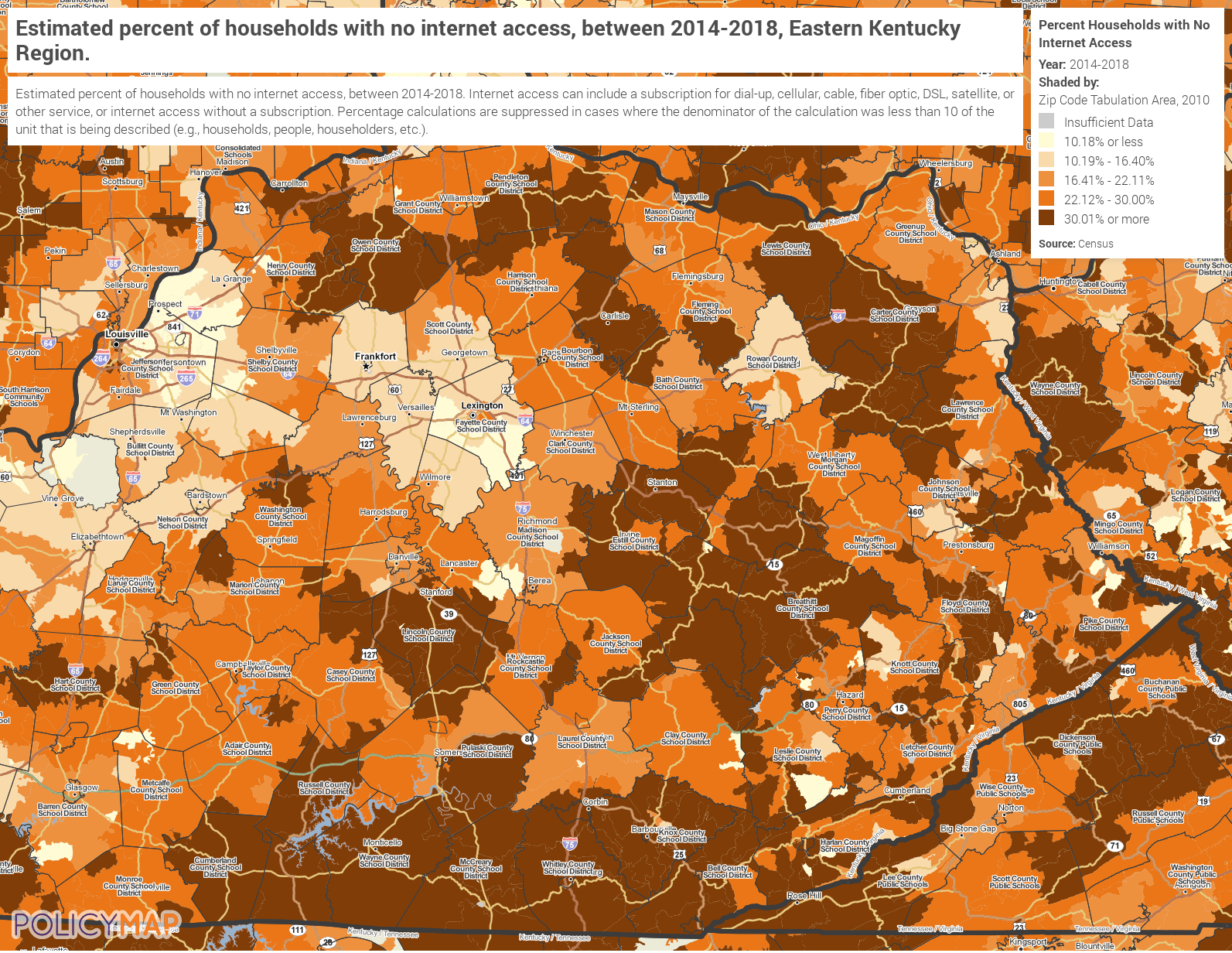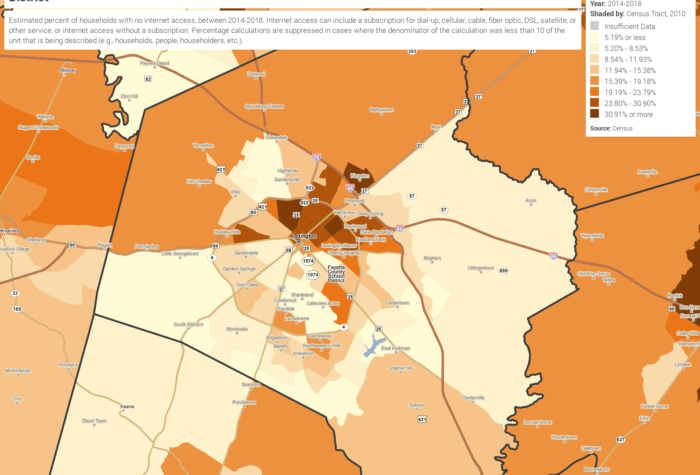In February 2020, KYOSA was awarded a $10,000 Data Project Grant, sponsored by the National Conference of State Legislatures (NCSL) and the Mott Foundation, in order to help the network build the infrastructure necessary to collect, analyze, and share important out-of-school time program data with state policymakers and other stakeholders and connect these data to larger state policy issues.
Since COVID-19, unequal computer and internet access among K-12 students has emerged as an important issue nationwide, often correlating strongly with factors such as race, socioeconomic status, and rurality. Within the out-of-school time space, the ability for programs to continue to serve enrolled students virtually during an unexpected shutdown or other crisis can mean the difference between a student having access or not to important supplemental services such as academic tutoring, STEM programming, social-emotional learning, career exploration/development, and critical mental health services.
As part of this grant-funded data project, KYOSA recently distributed a survey, sent to all 21st Century Community Learning Center (21st CCLC) and licensed/certified school-age child care program directors, which was focused on learning more about the current landscape of out-of-school time programs that serve K-12 students across Kentucky. In response to COVID-19, program directors were also asked to share information about whether or not they were able to continue to serve enrolled students virtually during when all in-person programming shut down in mid-March, and if not, what the barriers were to doing so.
Data from this survey suggest that, among those programs interested in connecting with students virtually following the shutdowns, many were unable to do so due to widespread disparities in tech access. Program directors cited lack of students’ lack of computer and/or internet access at home as one of the top reasons why they were unable to continue to connect with and serve enrolled students following the Governor’s executive order to close all programs to in-person services back in March.
Through this Data Project grant opportunity and the resulting partnership with PolicyMap, an online GIS-based data mapping tool used by a wide range of nonprofits nationwide, KYOSA will be able to provide stakeholders with easy-to-interpret visuals that show, down to the neighborhood and street level, which areas of the state are true “internet dead-zones” – or areas with no residential wired or wireless broadband access due to lack of infrastructure – versus which areas are areas where a large percentage of households lack access but for socioeconomic reasons.
The maps above are examples that show what is now possible thanks to our new partnership with PolicyMap. We will plan to make more of these maps for more counties and regions across Kentucky permanently available on our website, www.kyoutofschoolalliance.org, in the coming months. Stay tuned for more announcements on this!
